#Barnard & Sullivan
Text
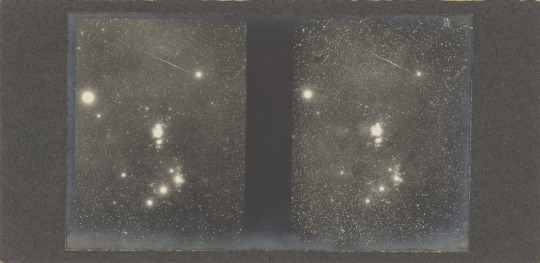
Barnard & Sullivan - Meteor Trail, 1880s
655 notes
·
View notes
Text
You wanna know how my weekend has been going?
I wrote ~7,200 words yesterday. And 8,220 today.
It’s safe to say book 2 (It’s Just A Kiss) is coming along nicely. Should be done with it in the next couple months 🤞🏻
Also like… look at these main characters (art by @lunchador )
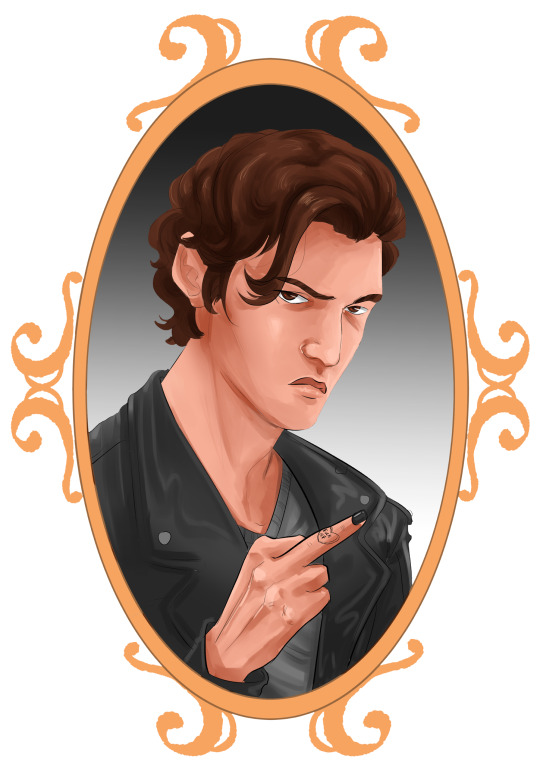

3 notes
·
View notes
Photo
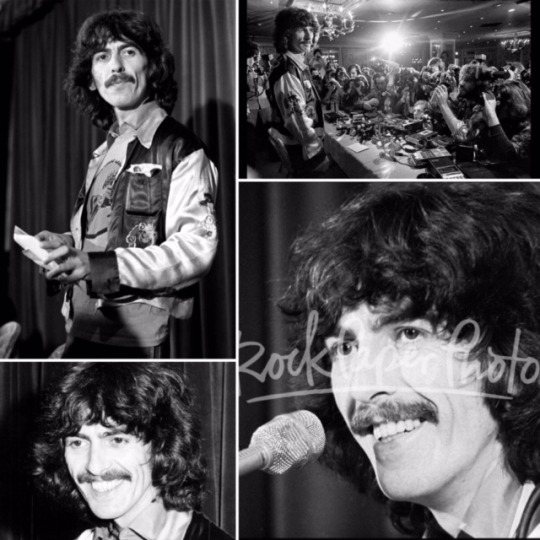
George Harrison, press conference, 23 October 1974; photos © Mark Sullivan/Getty Images; Tony Barnard/Los Angeles Times Archive/UCLA; Sherry Rayn Barnett/Rock Paper Photo; Michael Ochs Archives.
Harrison held a pre-tour press conference at the Beverly Wilshire Hotel days before embarking on his Dark Horse Tour; a few excerpts follow.
“There’s nothing to say, really. I’m a musician, not a talker. If you get my album [Dark Horse], it’s like ‘Peyton Place,’ I mean, it’ll tell you exactly what I’ve been doing.”
“This is really a test. I’ll either finish the tour ecstatically happy and I’ll want to go on tour everywhere, or I’ll end up just going back to my cave again for another five years.”
“I’d like to [play in Britain and Europe]. I tried to squeeze a concert in just before Christmas although all the halls were booked out. The feeling within the band is that we should do a gig in London. They’re saying, ‘Let’s do 12 dates, let’s tour England, let’s tour Europe.’ I want to go to Japan. I want to go everywhere. This year there’s too much for me to do and not enough time to do it in.”
Q: “Is there a paradox between your spiritualism and the atmosphere when you’re touring?”
George Harrison: “It is difficult, yeah. It’s good practise in a way, to be, as they say, in the world but not of the world. You can go to the Himalayas and miss it completely. Yet you can be stuck in the middle of New York and be very spiritual. I noticed some places like New York bring out a certain thing in myself while I found in places like Switzerland there were a lot of uptight people because they’re living in all this beauty, there’s no urgency in trying to find the beauty in themselves. If you’re stuck in somewhere like New York you have to look within yourself; otherwise you go crackers.”
Q: “Can you see a time when you’ll give up being a musician?”
George Harrison: “I can see a time when I’d like to give up this kind of madness, but I’d never stop music. Everything’s based on music.” (x)
#George Harrison#quote#quotes by George#Dark Horse Tour 1974#Dark Horse Tour#1974#23 October 1974#1970s#Harrison spirituality#fits queue like a glove
44 notes
·
View notes
Photo
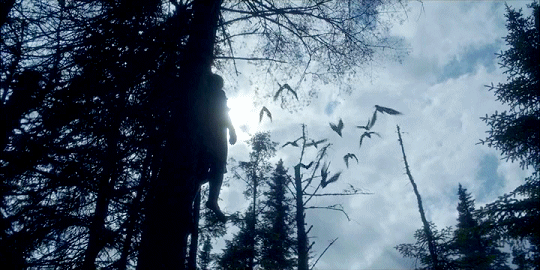
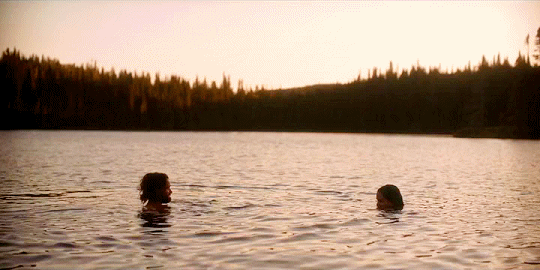
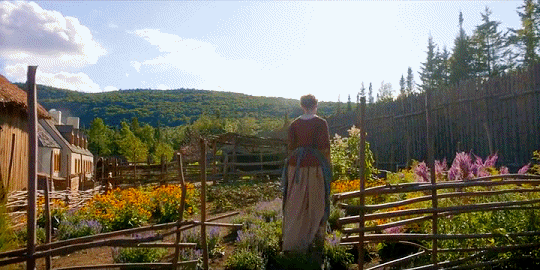
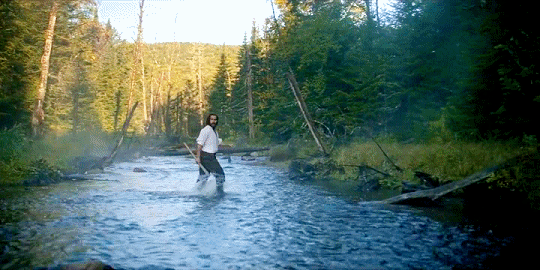
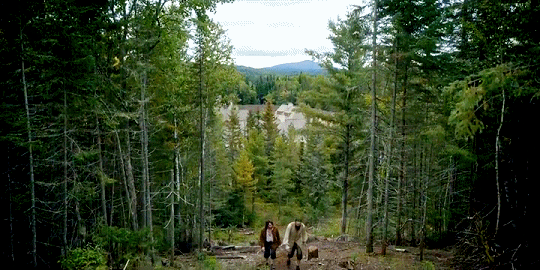
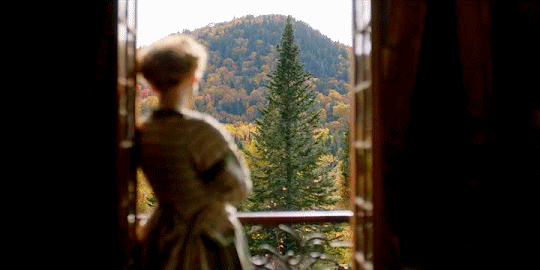
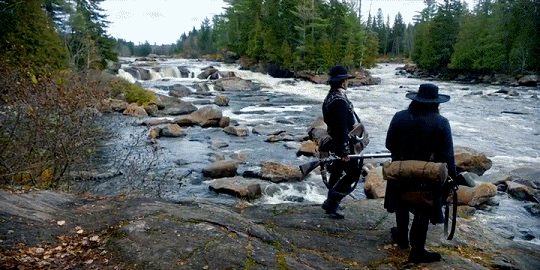

Barkskins (2020)
#barkskins#barkskinsedit#perioddramaedit#aneurin barnard#zahn mcclarnon#easily persuade by aesthetics#kaniehtiio horn#christian cooke#james bloor#tallulah haddon#thomas m. wright#lily sullivan#mine#water
268 notes
·
View notes
Photo
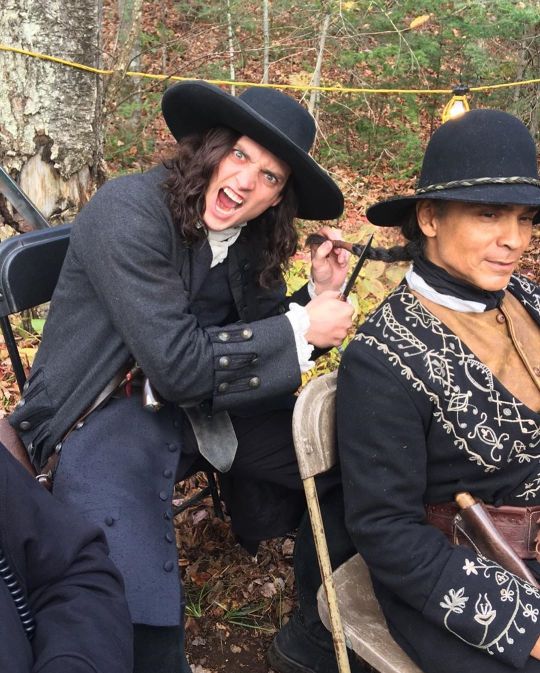
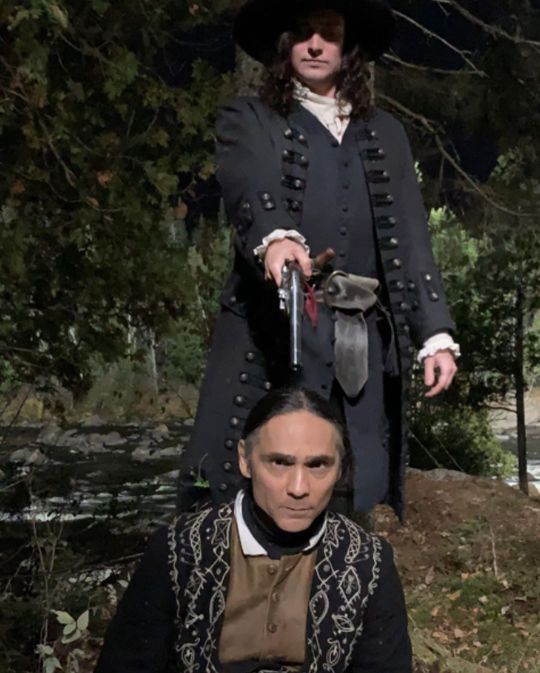
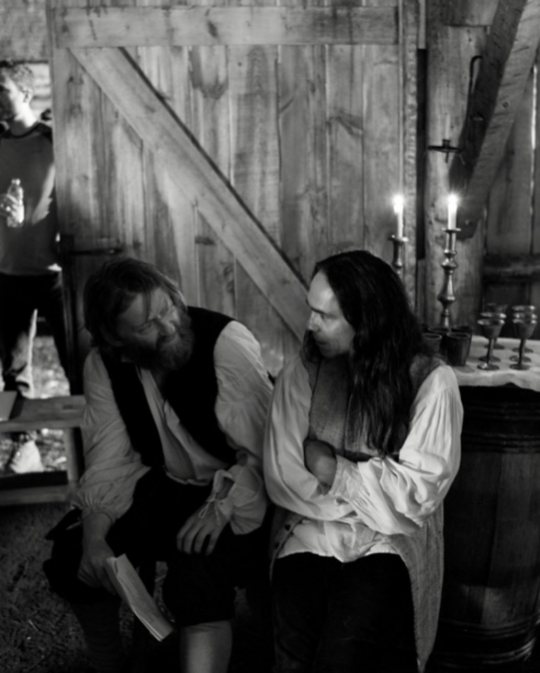

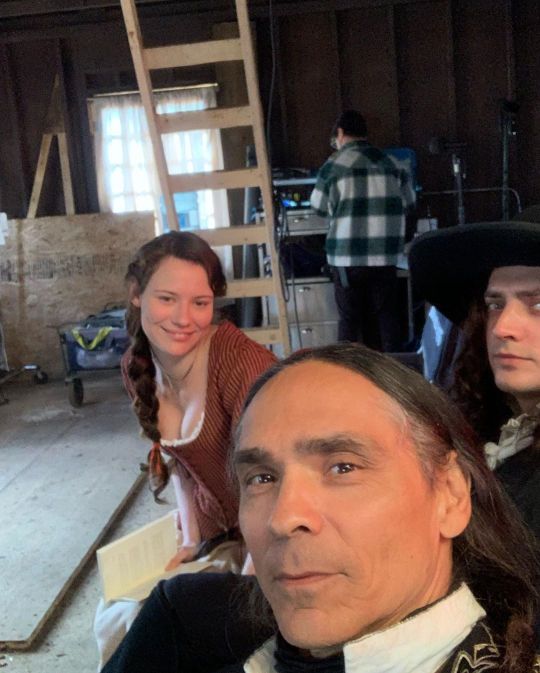
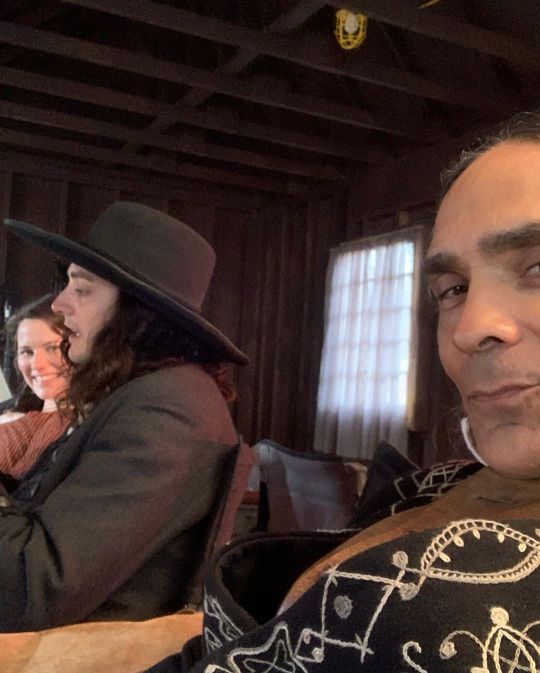
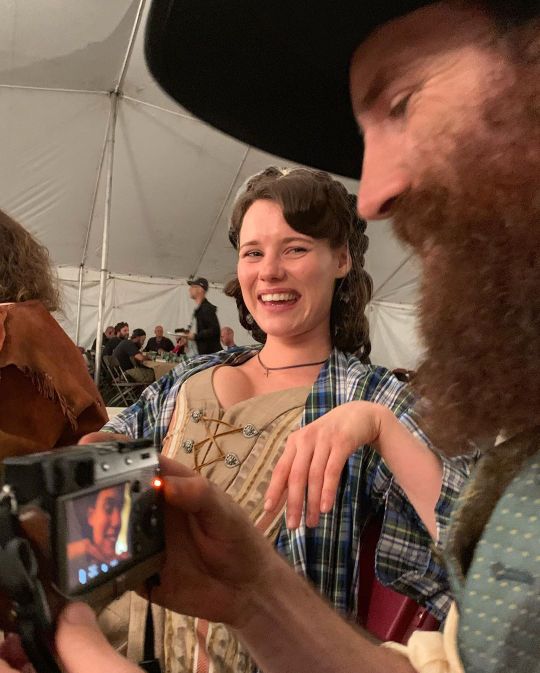
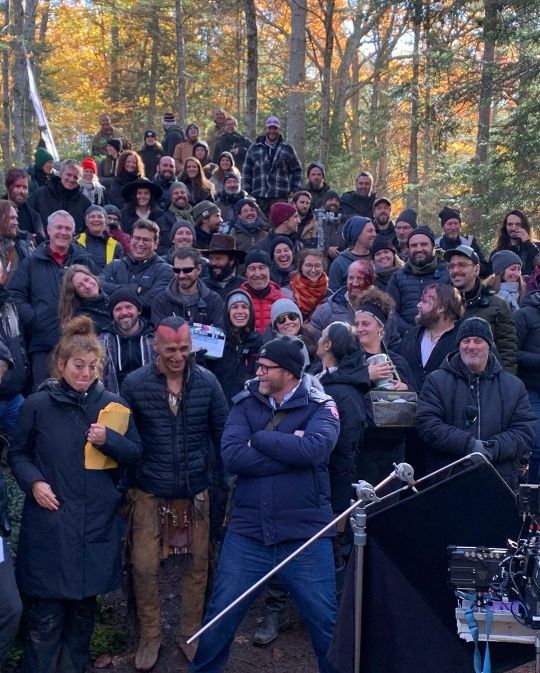
Zahn McClarnon’s Instagram - June 15, 2020
#idk if anybody's posted these before i tried looking but y'all know how tumblr search is#my post#barkskins#zahn mcclarnon#aneurin barnard#lily sullivan#marcia gay harden#tom wright#david wilmot#rykko bellemare#alex ferns#aneurin
112 notes
·
View notes
Photo
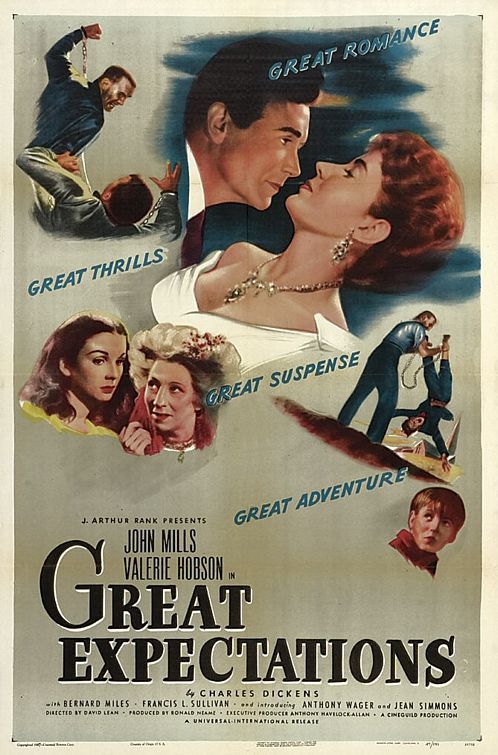
#Great Expectations#John Mills#Tony Wager#Valerie Hobson#Jean Simmons#Bernard Miles#Francis L. Sullivan#Finlay Currie#Martita Hunt#Alec Guinness#Ivor Barnard
5 notes
·
View notes
Text
Barkskins (2020)
Lately I’ve been posting some gifs and such from a new show based (loosely, my impression is) on the Annie Proulx novel of the same name. I haven’t read the novel and knew very little about the show before I started, but I thought I’d post a bit about my impressions thus far, as of episode 1.04.

So! Barkskins is a period drama set in the late 17th century in what is now Quebec, centered around a remote little French settlement called Wobik. There are multiple plot threads at work, but the initial hook driving the narrative is the suspicious massacre of another nearby settlement. This mystery wraps around the lives of the varied people competing to survive and thrive in this corner of New France.
Short and spoiler-free opinion: I'm enjoying it so far! The tone is fairly dark and gritty, always with an edge of danger and even some hints of a sort of religious/folk horror element at work (we’ll see if that comes to anything meaningful, I suppose). The cast has a lot of talent, and based on what I’ve read, there does appear to have been a serious effort to value and involve indigenous voices throughout the creative process. Moreover, it’s a historical setting that interests me, and I like some of the characters a lot. I suspect that one of the biggest dangers this show runs, giving its fairly wide scope and limited number of episodes, is that it may fail to deliver on / fully develop everything it’s hinting at or touching upon... but we’ll see.
Longer description and opinions, potentially with vague/general spoilers, under the cut.

(there is a lot of focus on trees in this show. you may not have expected that from the name.)
Anyone who follows me would be forgiven for thinking that there are only two characters in this show, because I’ve only been posting the same two over and over. Shockingly, there are, in fact, more. Prominent ones so far include:
A traumatized young girl (Lola Reid) who is apparently one of the only survivors of the aforementioned massacre, yet no one recognizes her as being one of the people at that settlement.
Rene Sel and Charles Duquet (Christian Cooke and James Bloor), indentured servants newly arrived from France.
Claude Trepagnay (David Thewlis), an eccentric but ambitious French settler, and Mari (Kaniehtiio Horn), the underappreciated Wendat woman who lives with him.
Hamish Goames and Yvon Kirkpatrick (Aneurin Barnard and Zahn McClarnon) of the Hudson’s Bay Company, who are investigating the disappearance of a colleague. Goames is British, Yvon Anishinaabe.
Melissande and Delphine (Tallulah Haddon and Lily Sullivan), filles du roi brought from France to become wives of settlers.
Mathilde Geffard (Marcia Gay Harden), a no-nonsense and very observant French innkeeper, along with other townspeople of Wobik.
As you can see, most of the lead characters are white Europeans. Given the history of this era and the premise of the show, colonialism (and the conflicts/violence thereof) is naturally a major and inescapable part of the narrative. I was unsure, going in, how the show was going to handle the portrayal of Native characters and cultures. It’s not a topic I can offer personal insight into, as I’m white and not very educated in the irl history/cultures of this setting anyway, but it is a topic I care about. So I looked online to see what better informed people had to say.
This article by The 1491s’ Migizi Pensoneau discusses his involvement with the show (including his initial skepticism) and highlights the indigenous voices who contributed to Barkskins — including writers, actors, historians, and community leaders and advisors, both in the writing room and on location. In Pensoneau’s words:
“Barkskins” is still historical fiction told for television, involving multiple stakeholders and stories, and made within the studio world. In other words, it’s not perfect. But the Native spaces and Native people depicted were handled with just as much care, time, and investment as every other aspect of the show. Instead of a Hollywood producer shorting Native representation based on profitability, we placed as much control as possible into the hands of the communities depicted. The integrity with which we approached this task tells a better story, and I’m excited for everyone to see indigenous characters and communities portrayed on television in a new way.
Steeve Gros-Louis, director of the Huron-Wendat Sandokwa dance troupe, has also spoken positively about his experience of the show’s approach to his culture. Overall, I would definitely say that the story thus far has been told primarily through the lens of colonists. But there are characters from multiple indigenous cultures of the region, two of whom are leads, and general reactions to the portrayal of these characters/cultures seem positive.

(this shot was SO sepia before i adjusted it, like i did a lot and yet it is still very sepia, fair warning that this show’s indoor scenes often suffer from a chronic case of Everything In History Was Sepia.)
Most of the lead characters are also male, though there are about five prominent women so far. (...Honestly, I’ve watched period dramas with fewer.) Among these, I think an interesting phenomenon the show’s chosen to explore is the filles du roi — young women who’ve traveled from France at the king’s expense specifically to provide wives for the overwhelmingly male population of early settlers. These young women differ in personalities and motives but all seem to be very much alone in the world, and it seems clear that they have chosen this path in hope of better opportunities but are also anxious about how their lives in this “new world” will turn out. The show is closely following the journeys of two of them in particular (ambitious Melissande and shy Delphine, both of whom have secrets), and while it is a bit tiring that women in historical fiction are so often defined by their relation to a man, I appreciate that this storyline is about the wives themselves.
Personally, my two favorite characters so far are the Company men: Goames and Yvon. Goames is very much the sort of character I’m often drawn to, in terms of his manner and apparent worldview: “the implacable sort, rigid in his thoughts and actions,” serious and decent and imo with hints of a storyline challenging his loyalty to his institution, which has in the past been the sort of storyline I very much enjoy. (I uh, would be lying if I said I wasn’t also simply... drawn to Mr. Barnard in general.) Yvon stands out for his dry snark and eloquence and for the bigotry he runs into as a Native man operating within white spheres, which casts a pall over his generally unflappable demeanor, and I have a lot of curiosity about his background. Their partnership is a highlight of the show, imo, and I’m quite interested in where their storyline will go re: their individual character arcs as well as the overall narrative. I’m also particularly fond of Mari and Delphine.
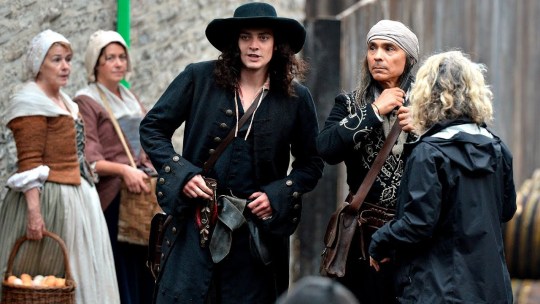
(my BOYS! this is not an actual still from the show but look at Aneurin. look at his silly pose.)
As far as the content goes, I don’t think it’s been too egregious so far, but be advised:
Primary warning is for violence. It’s not overly gory, but there is fighting, blood, bodies, etc. One act of violence I will warn for specifically: in the first episode, a group of Iroquois men are killed (offscreen), and their bodies are displayed hanged and impaled. This is clearly presented as an atrocity, and the bodies are mostly shown from a distance so that they’re small and indistinct, but there are a couple close-up shots.
Also, as I’ve mentioned, characters such as Yvon and Mari do face racist treatment/remarks from white characters.
There has been a nongraphic instance of attempted sexual assault, which was successfully rebuffed.
So... yeah! At time of writing, half the season has aired — it airs Monday evenings on Nat Geo and goes up on Hulu Tuesday afternoon, and they seem to be airing two episodes a week, which is frankly annoying, I’d rather get either a proper savor or a proper binge. The reviews I’m seeing online are mostly positive (I’ve seen at least one trot out the dreaded “It’s the next GoT!” line, which I think is inaccurate re: its tone/focus and also, like, why are people still trying to say that as though it’s a good thing), and there seems to be a small little fandom getting started here on Tumblr. (Not that I’ve really met many of y’all yet. If you’re reading this, hi!) And while Proulx’s novel covers some 300 years — it’s one of those generational sagas, I gather, following characters and their distant descendants — thus far I’ve seen no indication that the show is going to be set up that way. I recall reading something that said they’d basically taken a small part of the novel and massively expanded the characters, etc., so for now, at least, I’m going to assume the show is staying within this one slice of history.
Anyway, though. I’ll admit I’ve not been devoting 100% of my attention to any given ep, as I gotta work on other things while I watch, but so far, it’s intriguing, it’s got a number of actors and characters I like in it, and I appreciate learning that it had input from a variety of indigenous contributors. Overall, I intend to continue seeing where it goes!
#barkskins#period drama#aneurin barnard#david thewlis#zahn mcclarnon#kaniehtiio horn#marcia gay harden#tallulah haddon#lily sullivan#christian cooke#james bloor#my meta#op
14 notes
·
View notes
Photo
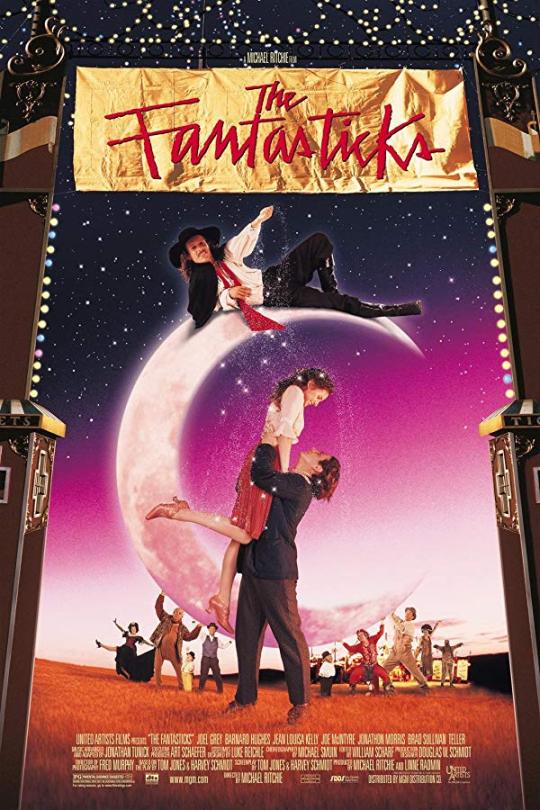

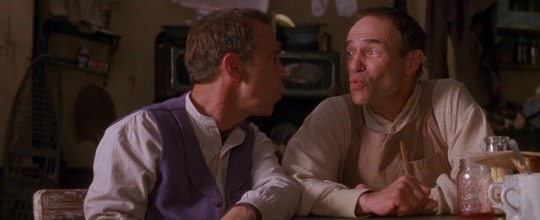
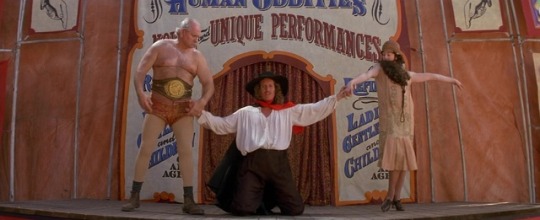
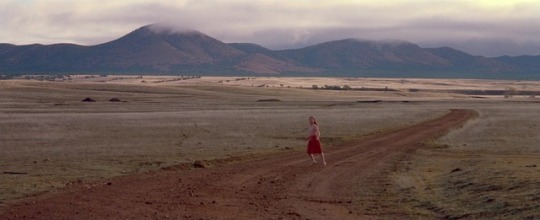
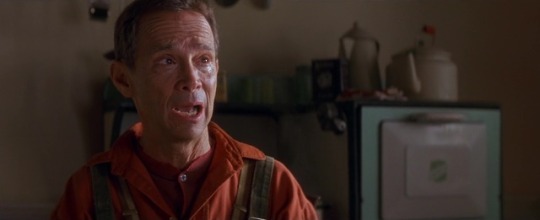
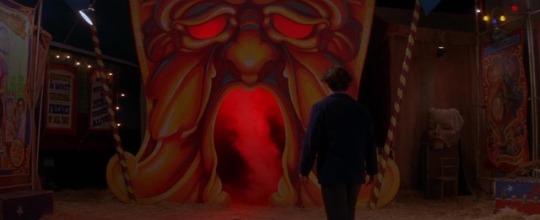
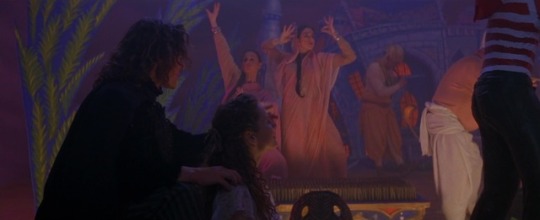
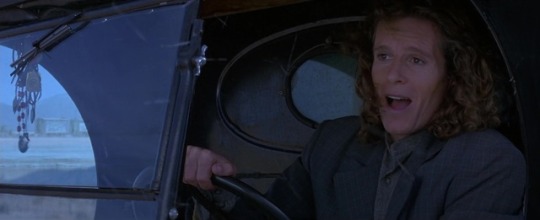
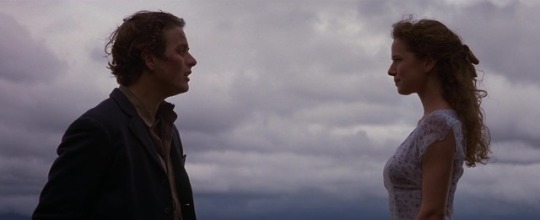
The Fantasticks (2000, Michael Ritchie)
7/28/19
#2000s#The Fantasticks#musical#Joel Grey#Brad Sullivan#Barnard Hughes#Jean Louisa Kelly#Joey McIntyre#Jonathon Morris#Teller#romance#stage adaptation#carnies#forbidden love#rural#farm#carnival#actors#coming of age#neighbors#family feud#teenagers#fencing
11 notes
·
View notes
Text
youtube
Maureen O'Hara – 'Come Back to Erin'
Song written by Charlotte Alington Barnard
Live on The Ed Sullivan Show – March 11, 1962
#born on this day#BOTD#Golden Age Hollywood#Maureen O'Hara#Come Back to Erin#The Ed Sullivan Show#music#YouTube#video
2 notes
·
View notes
Text
Events 9.9
9 – Arminius' alliance of six Germanic tribes ambushes and annihilates three Roman legions of Publius Quinctilius Varus in the Battle of the Teutoburg Forest.
337 – Constantine II, Constantius II, and Constans succeed their father Constantine I as co-emperors. The Roman Empire is divided between the three Augusti.
533 – A Byzantine army of 15,000 men under Belisarius lands at Caput Vada (modern Tunisia) and marches to Carthage.
1000 – Battle of Svolder, Viking Age.
1087 – William Rufus becomes King of England, taking the title William II, (reigned until 1100).
1141 – Yelü Dashi, the Liao dynasty general who founded the Qara Khitai, defeats the Seljuq and Kara-Khanid forces at the Battle of Qatwan.
1320 – In the Battle of Saint George, the Byzantines under Andronikos Asen ambush and defeat the forces of the Principality of Achaea, securing possession of Arcadia.
1488 – Anne becomes sovereign Duchess of Brittany, becoming a central figure in the struggle for influence that leads to the union of Brittany and France.
1493 – Battle of Krbava Field, a decisive defeat of Croats in Croatian struggle against the invasion by the Ottoman Empire.
1493 – Christopher Columbus, with 17 ships and 1,200 men, sails on second voyage from Cadiz.
1499 – The citizens of Lisbon celebrate the triumphal return of the explorer Vasco de Gama, completing his two-year journey around the Cape of Good Hope to India.
1513 – James IV of Scotland is defeated and dies in the Battle of Flodden, ending Scotland's involvement in the War of the League of Cambrai.
1543 – Mary Stuart, at nine months old, is crowned "Queen of Scots" in the central Scottish town of Stirling.
1561 – The ultimately unsuccessful Colloquy of Poissy opens in an effort to reconcile French Catholics and Protestants.
1739 – Stono Rebellion, the largest slave uprising in Britain's mainland North American colonies prior to the American Revolution, erupts near Charleston, South Carolina.
1776 – The Continental Congress officially names its union of states the United States.
1791 – Washington, D.C., the capital of the United States, is named after President George Washington.
1801 – Alexander I of Russia confirms the privileges of Baltic provinces.
1839 – John Herschel takes the first glass plate photograph.
1845 – Possible start of the Great Famine of Ireland.
1850 – California is admitted as the thirty-first U.S. state.
1850 – The Compromise of 1850 transfers a third of Texas's claimed territory (now parts of Colorado, Kansas, New Mexico, Oklahoma, and Wyoming) to federal control in return for the U.S. federal government assuming $10 million of Texas's pre-annexation debt.
1855 – Crimean War: The Siege of Sevastopol comes to an end when Russian forces abandon the city.
1863 – American Civil War: The Union Army enters Chattanooga, Tennessee.
1892 – Amalthea, third closest and fifth found moon of Jupiter is discovered by Edward Emerson Barnard.
1914 – World War I: The creation of the Canadian Automobile Machine Gun Brigade, the first fully mechanized unit in the British Army.
1922 – The Greco-Turkish War effectively ends with Turkish victory over the Greeks in Smyrna.
1923 – Mustafa Kemal Atatürk, the founder of the Republic of Turkey, founds the Republican People's Party.
1924 – Hanapepe massacre occurs on Kauai, Hawaii.
1936 – The crews of Portuguese Navy frigate NRP Afonso de Albuquerque and destroyer Dão mutinied against the Salazar dictatorship's support of General Franco's coup and declared their solidarity with the Spanish Republic.
1939 – World War II: The Battle of Hel begins, the longest-defended pocket of Polish Army resistance during the German invasion of Poland.
1939 – Burmese national hero U Ottama dies in prison after a hunger strike to protest Britain's colonial government.
1940 – George Stibitz pioneers the first remote operation of a computer.
1940 – Treznea Massacre in Transylvania.
1942 – World War II: A Japanese floatplane drops incendiary bombs on Oregon.
1943 – World War II: The Allies land at Salerno and Taranto, Italy.
1944 – World War II: The Fatherland Front takes power in Bulgaria through a military coup in the capital and armed rebellion in the country. A new pro-Soviet government is established.
1945 – Second Sino-Japanese War: The Empire of Japan formally surrenders to China.
1947 – First case of a computer bug being found: A moth lodges in a relay of a Harvard Mark II computer at Harvard University.
1948 – Kim Il-sung declares the establishment of the Democratic People's Republic of Korea (North Korea).
1954 – The 6.7 Mw Chlef earthquake shakes northern Algeria with a maximum Mercalli intensity of XI (Extreme). At least 1,243 people were killed and 5,000 were injured.
1956 – Elvis Presley appears on The Ed Sullivan Show for the first time.
1965 – The United States Department of Housing and Urban Development is established.
1965 – Hurricane Betsy makes its second landfall near New Orleans, leaving 76 dead and $1.42 billion ($10–12 billion in 2005 dollars) in damages, becoming the first hurricane to cause over $1 billion in unadjusted damage.
1966 – The National Traffic and Motor Vehicle Safety Act is signed into law by U.S. President Lyndon B. Johnson.
1969 – In Canada, the Official Languages Act comes into force, making French equal to English throughout the Federal government.
1970 – A British airliner is hijacked by the Popular Front for the Liberation of Palestine and flown to Dawson's Field in Jordan.
1971 – The four-day Attica Prison riot begins, eventually resulting in 39 dead, most killed by state troopers retaking the prison.
1972 – In Kentucky's Mammoth Cave National Park, a Cave Research Foundation exploration and mapping team discovers a link between the Mammoth and Flint Ridge cave systems, making it the longest known cave passageway in the world.
1990 – Batticaloa massacre: Massacre of 184 Tamil civilians by the Sri Lankan Army in Batticaloa District.
1991 – Tajikistan declares independence from the Soviet Union.
1993 – Israeli–Palestinian peace process: The Palestine Liberation Organization officially recognizes Israel as a legitimate state.
1994 – Space Shuttle program: Space Shuttle Discovery is launched on STS-64.
2001 – Ahmad Shah Massoud, leader of the Northern Alliance, is assassinated in Afghanistan by two al-Qaeda assassins who claimed to be Arab journalists wanting an interview.
2002 – The Rafiganj train wreck happened in Bihar, India.
2009 – The Dubai Metro, the first urban train network in the Arabian Peninsula, is ceremonially inaugurated.
2012 – The Indian space agency puts into orbit its heaviest foreign satellite yet, in a streak of 21 consecutive successful PSLV launches.
2012 – A wave of attacks kill more than 100 people and injure 350 others across Iraq.
2015 – Elizabeth II became the longest reigning monarch of the United Kingdom.
2016 – The government of North Korea conducts its fifth and reportedly biggest nuclear test. World leaders condemn the act, with South Korea calling it "maniacal recklessness".
1 note
·
View note
Photo
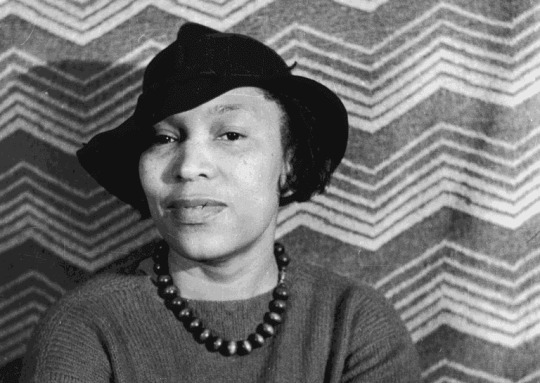
I, Zora Neale Hurston was born on January 7, 1891, in Notasulga, Alabama. After I was born, my mother and father moved to Eatonville, Florida. Both of them were formerly enslaved, my father John Hurston, and my mother Lucy Ann Hurston. My mother passed away in 1904, right around the time I was first becoming a teenager. In order to support myself, I had worked may jobs. I was once a maid for an actress in a touring Gilbert and Sullivan group. During the years I was able to earn an associate degree from Howard University in 1920. This was also the time that I moved out of my comfort zone and moved to New York City. I lived in Harlem. The best decision of my life. My apartment was the place to be, everyone would come over just to talk, sing, and just live life. Living in Harlem gave me the opportunity to meet Langston Hughes and Countee Cullen. Amazing people. The Harlem Renaissance, couldn’t forget about that! Empowering the community, bringing music, art, and love back into the community. Over the course of my life, I would come to publish 4 novels and 2 books on folklore. I visited the south and the Caribbean for my research. I received my degree in Anthropology from Barnard College. It was how I was able to accomplish what I did. I dedicated my life to promoting and studying black culture. I traveled to Haiti and Jamaica to study the religion of the African diaspora.
9 notes
·
View notes
Note
well howdy! 🌹
Howdy! Here's a little bit more than one sentence cause I gotta share:
“Love is blind… and stupid.”
“And horny, apparently,” he snorted.
Charlie laughed, “And so are drunk people. Love’s a lot like being drunk.”
“Being love-drunk is a thing.”
She nodded, “I think after four years Mer and I are past that stage.”
He shrugged, “Maybe not cause you’re being blind, dumb, drunk, and horny right now.”
Send me a rose and I'll give you some lines from my current WIP(s)
1 note
·
View note
Link
via Thinking Allowed
Time: Laurie Taylor considers the extent to which the way we spend our time has changed over the last fifty years. Is it true that we are working more, sleeping less and addicted to our phones? What does this mean for our health, wealth and happiness? Oriel Sullivan, Professor of Sociology of Gender at the University of Oxford, has taken a detailed look at our daily activities and found some surprising truths about the social and economic structure of the world we live in. Also, Daniel S. Hamermesh, Distinguished Scholar at Barnard College, examines the pressure to do more in less time. Which people are the most rushed & why - from France and Germany to the UK and Japan. Producer: Jayne Egerton
2 notes
·
View notes
Text
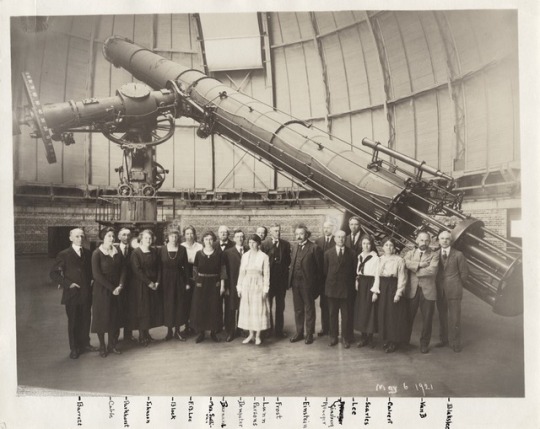
Albert Einstein, the staff and faculty of Yerkes Observatory, and other visitors photographed with the 40-inch refractor telescope. From left, Storrs B. Barrett, Lela D. Cable, John A. Parkhurst, Elsie E. Johnson, Dorothy W. Block, Florence Baldwin Lee, Dorothy K. Sullivan, Edward E. Barnard, Arthur J. Dempster, Harriet M. Parsons, A. C. Lunn, Edwin B. Frost, Albert Einstein, Alexander Pflüger, S. Ginsberg, Oliver J. Lee, Esther L. Searles, Mary R. Calvert, George Van Biesbroeck, and George C. Blakslee.
Einstein, Albert, 1879-1955 | Calvert, Mary Ross, 1884-1974 | Van Biesbroeck, George, 1880-1974 | Barnard, Edward Emerson, 1857-1923 | Pflüger, Alexander Wilhelm, 1869-1946 | Frost, Edwin Brant, 1866-1935
University of Chicago Library
12 notes
·
View notes
Photo
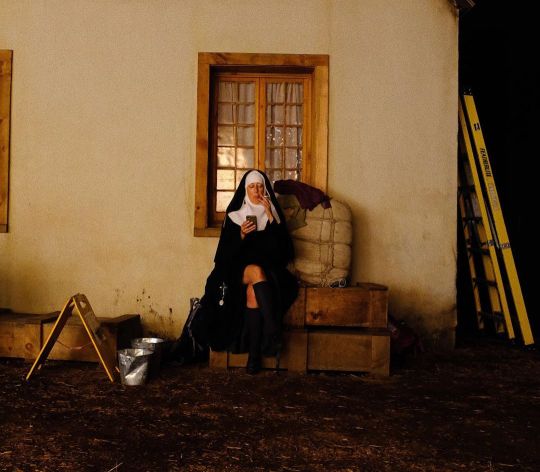
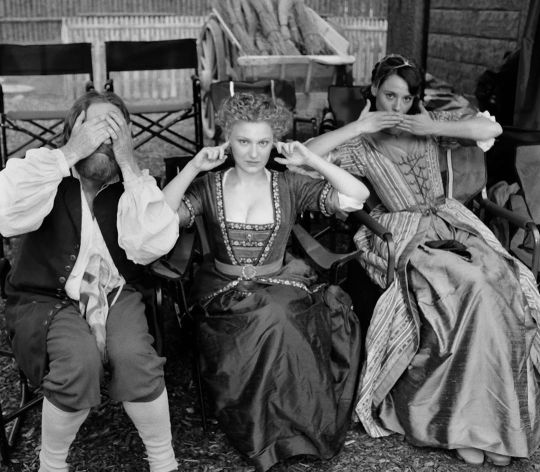

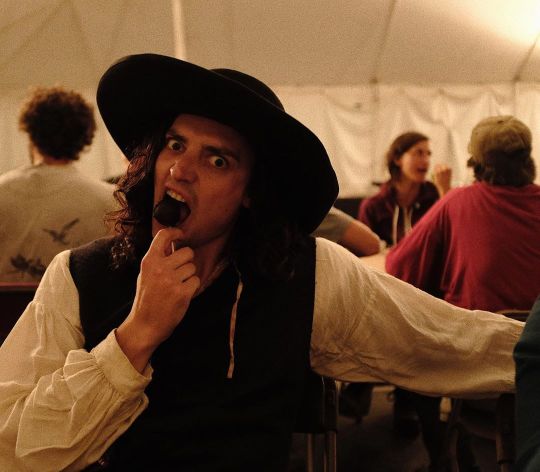
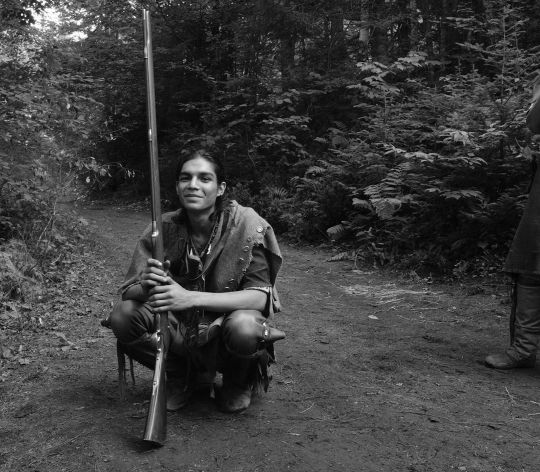
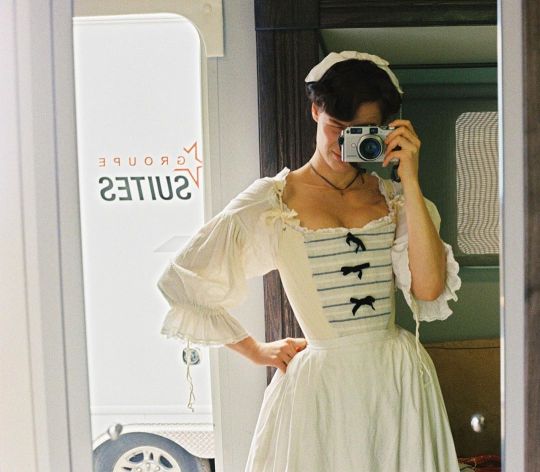
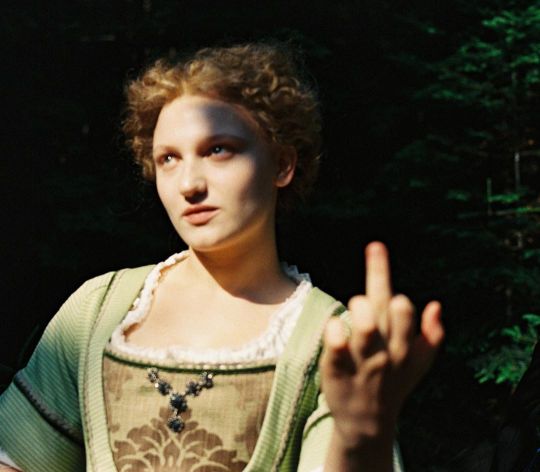
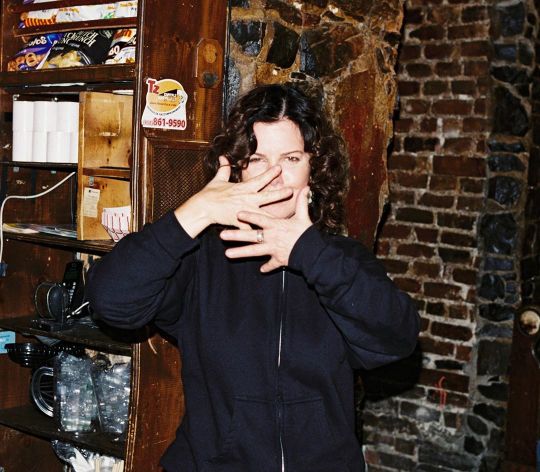
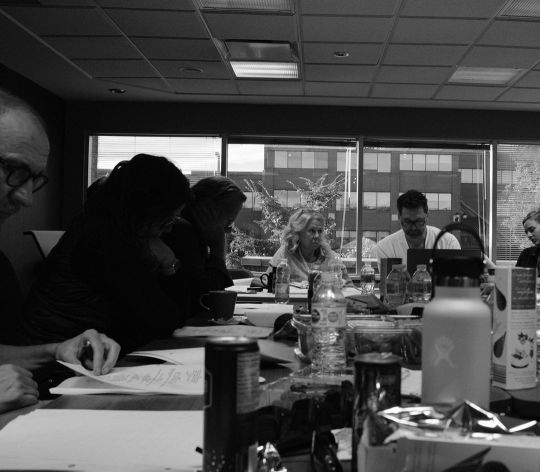
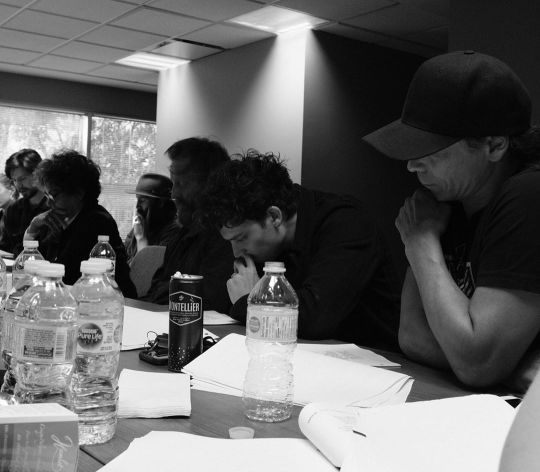
lily_sullivan: developed film from #barkskins @natgeochannel @hulu
#thank you lily#my post#barkskins#aneurin#aneurin barnard#lily sullivan#tallulah haddon#marcia gay harden#zahn mcclarnon#david wilmot#leni parker#owen crow shoe#david thewlis
144 notes
·
View notes
Text
Favourite films watched in 2018
I arranged them into broad categories -- other than that they’re in no particular order.
Indie
River of Grass, Meek’s Cutoff and Night Moves (Kelly Reichardt, 1994, 2010 and 2013)
Tangerine and The Florida Project (Sean Baker, 2015 and 2017)
We Need to Talk About Kevin (Lynne Ramsay, 2011)
Winter’s Bone (Debra Granik, 2010)
Kumiko, the Treasure Hunter (David Zellner, 2014)
Ginger & Rosa (Sally Potter, 2012)
Cracks (Jordan Scott, 2009)
I Am Not a Witch (Rungano Nyoni, 2017)
Turn the River (Chris Eigeman, 2007)
Hello I Must Be Going (Todd Louiso, 2012)
Shuttle Life (Tan Seng Kiat, 2017)
On Body and Soul (Testről és lélekről, Ildikó Enyedi, 2017)
Vagabond (Sans toit ni loi, Agnès Varda, 1984)
Easy Living (Adam Keleman, 2017)
Mother of George (Andrew Dosunmu, 2013)
Khadak (Peter Brosens and Jessica Hope Woodworth, 2006)
Shirkers (Sandi Tan, 2018)
Comedy
Lipstick Under My Burkha (Alankrita Shrivastava, 2016)
Addicted to Fresno (Jamie Babbit, 2015)
The Spy Who Dumped Me (Susanna Fogel, 2018)
Edge of Seventeen (David Moreton, 1998)
Secretary (Steven Shainberg, 2002)
Experimental
Scorpio Rising (Kenneth Anger, 1963)
Always Shine (Sophia Takal, 2016)
The Midnight Swim (Sarah Adina Smith, 2014)
La Jetée (Chris Marker, 1962)
Daisies (Sedmikrásky, Věra Chytilová, 1966)
Classics
Reflections in a Golden Eye (John Huston, 1967)
Dead Ringer (Paul Henreid, 1964)
Horror
Creep and Creep 2 (Patrick Brice, 2014 and 2017)
The Poughkeepsie Tapes and As Above, So Below (John Erick Dowdle, 2007 and 2014)
Raw (Grave, Julia Ducournau, 2016)
Cargo (Ben Howling and Yolanda Ramke, 2017)
Hard Candy (David Slade, 2005)
Snowtown (Justin Kurzel, 2011)
Banshee Chapter (Blair Erickson, 2013)
Mandy (Panos Cosmatos, 2018)
Science fiction
Primer and Upstream Color (Shane Carruth, 2004 and 2013)
Resolution and The Endless (Justin Benson and Aaron Moorhead, 2012 and 2017)
Midnight Special (Jeff Nichols, 2016)
Arrival (Denis Villeneuve, 2016)
Into the Forest (Patricia Rozema, 2015)
Ex Machina (Alex Garland, 2014)
Under the Skin (Jonathan Glazer, 2013)
Liquid Sky (Slava Tsukerman, 1982)
Bird Box (Susanne Bier, 2018)
Action
Hell or High Water (David Mackenzie, 2016)
M.F.A. (Natalia Leite, 2017)
Revenge (Coralie Fargeat, 2017)
Brick (Rian Johnson, 2005)
Full list of 306 films watched in 2018 under the cut!
January
The Devil’s Candy (Sean Byrne, 2015)
A United Kingdom (Amma Asante, 2016)
Creep (Patrick Brice, 2014)
The Witch (Robert Eggers, 2015)
The Blues Brothers (John Landis, 1980)
The Lost Boys (Joel Schumacher, 1987)
Midnight Special (Jeff Nichols, 2016)
Arrival (Denis Villeneuve, 2016)
We Need to Talk About Kevin (Lynne Ramsay, 2011)
Life (Daniel Espinosa, 2017)
Logan (James Mangold, 2017)
Creep 2 (Patrick Brice, 2017)
The Discovery (Charlie McDowell, 2017)
Otherlife (Ben C. Lucas, 2017)
The Dressmaker (Jocelyn Moorhouse, 2015)
Bokeh (Geoffrey Orthwein and Andrew Sullivan , 2017)
February
Get Out (Jordan Peele, 2017)
The Handmaiden (아가씨, Agassi, Park Chan-wook, 2016)
Brick (Rian Johnson, 2005)
Looper (Rian Johnson, 2012)
Winter’s Bone (Debra Granik, 2010)
Thelma (Joachim Trier, 2017)
The Guest (Adam Wingard, 2014)
Beach Rats (Eliza Hittman, 2017)
Let the Right One In (Låt den rätte komma in, Tomas Alfredson, 2008)
Cameraperson (Kirsten Johnson, 2016)
Sweet Bean (あん, An, Naomi Kawase, 2015)
The Hallow (Corin Hardy, 2015)
Cloverfield (Matt Reeves, 2008)
10 Cloverfield Lane (Dan Trachtenberg, 2016)
The Cloverfield Paradox (Julius Onah, 2018)
Moonlight (Barry Jenkins, 2016)
28 Days Later (Danny Boyle, 2002)
Take Shelter (Jeff Nichols, 2011)
Ginger Snaps (John Fawcett, 2000)
River of Grass (Kelly Reichardt, 1994)
Old Joy (Kelly Reichardt, 2006)
Reflections in a Golden Eye (John Huston, 1967)
March
Raw (Grave, Julia Ducournau, 2016)
Palo Alto (Gia Coppola, 2013)
By the Sea (Angelina Jolie, 2015)
Lady Bird (Greta Gerwig, 2017)
Jupiter Ascending (The Wachowskis, 2015)
Irreplaceable You (Stephanie Laing, 2018)
Kumiko, the Treasure Hunter (David Zellner, 2014)
Annihilation (Alex Garland, 2018)
Ravenous (Les Affamés, Robin Aubert, 2017)
The Bad Batch (Ana Lily Amirpour, 2016)
Notes on Blindness (Peter Middleton and James Spinney, 2016)
Breathe (Respire, Mélanie Laurent, 2014)
Night Moves (Kelly Reichardt, 2013)
Carol (Todd Haynes, 2015)
Lovesong (So Yong Kim, 2016)
Upstream Color (Shane Carruth, 2013)
April
ARQ (Tony Elliott, 2016)
Primer (Shane Carruth, 2004)
Meek’s Cutoff (Kelly Reichardt, 2010)
Certain Women (Kelly Reichardt, 2016)
The Lady from Shanghai (Orson Welles, 1947)
Waking Life (Richard Linklater, 2001)
Roman Holiday (William Wyler, 1953)
American Honey (Andrea Arnold, 2016)
Maurice (James Ivory, 1987)
The Silent House (La Casa Muda, Gustavo Hernández, 2010)
Viral (Ariel Schulman and Henry Joost, 2016)
Buster’s Mal Heart (Sarah Adina Smith, 2016)
Waitress (Adrienne Shelly, 2007)
Grey Gardens (Albert and David Maysle, 1975)
Ginger & Rosa (Sally Potter, 2012)
Cracks (Jordan Scott, 2009)
Into the Forest (Patricia Rozema, 2015)
A New Leaf (Elaine May, 1971)
Vertigo (Alfred Hitchcock, 1958)
The Beguiled (Sofia Coppola, 2017)
Scarface (Brian De Palma, 1983)
The Violent Years (William Morgan, 1956)
The Ritual (David Bruckner, 2017)
Casting JonBenet (Kitty Green, 2017)
Slums of Beverly Hills (Tamara Jenkins, 1998)
We’ve Forgotten More Than We Ever Knew (Thomas Woodrow, 2017)
Love and Other Cults (Kemonomichi, Eiji Uchida, 2017)
You Were Never Really Here (Lynne Ramsay, 2017)
Shirley: Visions of Reality (Gustav Deutsch, 2013)
Catfight (Onur Tuckel, 2017)
Pyewacket (Adam MacDonald, 2017)
May
Lick the Star (Sofia Coppola, 1998)
Scorpio Rising (Kenneth Anger, 1963)
Novitiate (Maggie Betts, 2017)
The Tree of Life (Terrence Malick, 2011)
The Happiest Day in the Life of Olli Mäki (Hymyilevä mies, Juho Kuosmanen, 2016)
Dead Reckoning (John Cromwell, 1947)
Human Flow (Ai Weiwei, 2017)
Mystery Train (Jim Jarmusch, 1989)
Dawson City: Frozen Time (Bill Morrison, 2016)
The Killing of a Sacred Deer (Yorgos Lanthimos, 2017)
I Am Not a Witch (Rungano Nyoni, 2017)
Cléo from 5 to 7 (Cléo de 5 à 7, Agnès Varda, 1962)
Orbiter 9 (Órbita 9, Hatem Khraiche, 2017)
M.F.A. (Natalia Leite, 2017)
Lipstick Under My Burkha (Alankrita Shrivastava, 2016)
Kedi (Ceyda Torun, 2016)
Deidra and Laney Rob a Train (Sydney Freeland, 2017)
The Most Dangerous Game (Irving Pichel and Ernest B. Schoedsack, 1932)
Girl Asleep (Rosemary Myers, 2015)
Always Shine (Sophia Takal, 2016)
The Monster (Bryan Bertino, 2016)
Desert Hearts (Donna Deitch, 1985)
Addicted to Fresno (Jamie Babbit, 2015)
Beyond a Reasonable Doubt (Fritz Lang, 1956)
The Fits (Anna Rose Holmer, 2015)
Hell or High Water (David Mackenzie, 2016)
The Midnight Swim (Sarah Adina Smith, 2014)
The Quiet Hour (Stéphanie Joalland, 2014)
Synchronicity (Jacob Gentry, 2015)
Who’s Afraid of Virginia Woolf? (Mike Nichols, 1966)
Pod (Mickey Keating, 2015)
Turn the River (Chris Eigeman, 2007)
Tangerine (Sean Baker, 2015)
Frequencies (Darren Paul Fisher, 2013)
Spring (Justin Benson and Aaron Moorhead, 2014)
Time Lapse (Bradley D. King, 2014)
Meet Me There (Lex Lybrand, 2014)
Ex Machina (Alex Garland, 2014)
The Florida Project (Sean Baker, 2017)
Berberian Sound Studio (Peter Strickland, 2012)
Laggies (Lynn Shelton, 2014)
Starlet (Sean Baker, 2012)
Dead Ringer (Paul Henreid, 1964)
The Doom Generation (Gregg Araki, 1995)
The Riot Club (Lone Scherfig, 2014)
Berlin Syndrome (Cate Shortland, 2017)
Dude (Olivia Milch, 2018)
Nightcrawler (Dan Gilroy, 2014)
June
Hello I Must Be Going (Todd Louiso, 2012)
Romy and Michele’s High School Reunion (David Mirkin, 1997)
Mystery Road (Ivan Sen, 2013)
The Double (Richard Ayoade, 2013)
Dear White People (Justin Simien, 2014)
The Selfish Giant (Clio Barnard, 2013)
Don’t Breathe (Fede Álvarez, 2016)
Marina Abramović: The Artist is Present (Matthew Akers, 2012)
Hot Bot (Michael Polish, 2016)
Beneath the Harvest Sky (Aron Gaudet and Gita Pullapilly, 2013)
Tim’s Vermeer (Teller, 2013)
The Firefly (La Luciérnaga, Ana Maria Hermida, 2015)
Twinsters (Samantha Futerman and Ryan Miyamoto, 2015)
Resolution (Justin Benson and Aaron Moorhead, 2012)
Enemy (Denis Villeneuve, 2013)
Mother of George (Andrew Dosunmu, 2013)
We Are What We Are (Jim Mickle, 2013)
The Battery (Jeremy Gardner, 2012)
Crystal Fairy & The Magical Cactus (Sebastián Silva , 2013)
Boy (Taika Waititi,2010)
The Perks of Being a Wallflower (Steven Chbosky, 2012)
White Bird in a Blizzard (Gregg Araki, 2014)
The American (Anton Corbijn, 2010)
Ocean’s Eight (Gary Ross, 2018)
Compliance (Craig Zobel, 2012)
Seeking a Friend for the End of the World (Lorene Scafaria, 2012)
Weekend (Andrew Haigh, 2011)
Under the Skin (Jonathan Glazer, 2013)
July
Martha Marcy May Marlene (Sean Durkin, 2011)
Safety Not Guaranteed (Colin Trevorrow, 2012)
Hard Candy (David Slade, 2005)
Duck Butter (Miguel Arteta, 2018)
The Artist (Michel Hazanavicius, 2011)
Another Earth (Mike Cahill, 2011)
Melancholia (Lars von Trier, 2011)
Woodshock (Kate and Laura Mulleavy, 2017)
Hanna (Joe Wright, 2011)
Snowtown (Justin Kurzel, 2011)
Aloft (Claudia Llosa, 2014)
A Fantastic Woman (Una mujer fantástica, Sebastián Lelio, 2017)
The Feels (Jenée LaMarque, 2017)
The Endless (Justin Benson and Aaron Moorhead, 2017)
Shuttle Life (Tan Seng Kiat, 2017)
I Origins (Mike Cahill, 2014)
The Taking of Deborah Logan (Adam Robitel, 2014)
Chasing Ice (Jeff Orlowski, 2012)
Manchester By the Sea (Kenneth Lonergan, 2016)
The Bar (El Bar, Álex de la Iglesia, 2017)
Mr. Roosevelt (Noël Wells, 2017)
Woman Walks Ahead (Susanna White, 2017)
The Manual (William Magness, 2017)
The Conjuring (James Wan, 2013)
Oculus (Mike Flanagan, 2013)
The Eye (Pang brothers, 2002)
August
The Overnight (Peter Brice, 2015)
Axolotl Overkill (Helene Hegemann, 2017)
Little Sister (Zach Clark, 2016)
Witchfinder General (Michael Reeves, 1968)
Secretary (Steven Shainberg, 2002)
The Quiet Earth (Geoff Murphy, 1985)
The Hunger (Tony Scott, 1983)
They (Anahita Ghazvinizadeh, 2017)
Revenge (Coralie Fargeat, 2017)
Cargo (Ben Howling and Yolanda Ramke, 2017)
Fast Times at Ridgemont High (Amy Heckerling, 1982)
Radius (Caroline Labrèche and Steeve Léonard, 2017)
17 Girls (17 Filles, Delphine Coulin and Muriel Coulin, 2011)
The Deuce of Spades (Faith Granger, 2011)
The Bank Job (Roger Donaldson, 2008)
La Jetée (Chris Marker, 1962)
Train to Busan (부산행, Busanhaeng, Yeon Sang-ho, 2016)
As Above, So Below (John Erick Dowdle, 2014)
Liquid Sky (Slava Tsukerman, 1982)
Wild Zero (Tetsuro Takeuchi, 1999)
Multiple Maniacs (John Waters, 1970)
The Lifeguard (Liz W. Garcia, 2013)
The Umbrellas of Cherbourg (Les Parapluies de Cherbourg, Jacques Demy, 1964)
The Beales of Grey Gardens (Albert Maysles, David Maysles and Ian Markiewicz, 2006)
The Edge of Seventeen (Kelly Fremon Craig, 2016)
Salesman (Albert Maysles, David Maysles and Charlotte Zwerin, 1969)
Easy Living (Adam Keleman, 2017)
Going Back (Adam Keleman, 2010)
A Series of Acts (Adam Keleman, 2006)
Long Days (Adam Keleman, 2012)
Okja (Bong Joon-ho, 2017)
Before I Fall (Ry Russo-Young, 2017)
The Poughkeepsie Tapes (John Erick Dowdle, 2007)
Three Colours: Blue (Krzysztof Kieślowski, 1993)
Three Colours: White (Krzysztof Kieślowski, 1994)
Three Colours: Red (Krzysztof Kieślowski, 1994)
Island of Lost Souls (Erle C. Kenton, 1932)
Khadak (Peter Brosens and Jessica Hope Woodworth, 2006)
The Lure (Córki dancingu, Agnieszka Smoczyńska, 2015)
Vagabond (Sans toit ni loi, Agnès Varda, 1984)
Little Evil (Eli Craig, 2017)
September
The Harder They Come (Perry Henzell, 1972)
Isle of Flowers (Ilha das Flores, Jorge Furtado, 1989)
Beat Girl (Edmond T. Gréville, 1960)
On Body and Soul (Testről és lélekről, Ildikó Enyedi, 2017)
Village of the Damned (Wolf RIlla, 1960)
Tampopo (タンポポ, Tanpopo, Juzo Itami, 1985)
Mustang (Deniz Gamze Ergüven, 2015)
Outside In (Lynn Shelton, 2017)
Voyeur (Myles Kane, 2017)
The Land of Steady Habits (Nicole Holofcener, 2018)
Clouds of Sils Maria (Olivier Assayas, 2014)
Already Tomorrow in Hong Kong (Emily Ting, 2015)
Tig (Kristina Goolsby and Ashley York, 2015)
Shortwave (Ryan Phillips, 2016)
The Loss of a Teardrop Diamond (Jodie Markell, 2008)
Sexy Beast (Jonathan Glazer, 2000)
October
The Most Assassinated Woman in the World (La Femme la plus assassinée du monde, Franck Ribière, 2018)
I Think We’re Alone Now (Reed Morano, 2018)
The Woman Who Left (Ang Babaeng Humayo, Lav Diaz, 2016)
The Babysitter (Brian Duffield, 2017)
The Frighteners (Peter Jackson, 1996)
Emelie (Michael Thelin, 2015)
21 Grams (Alejandro González Iñárritu, 2003)
Apostle (Gareth Evans, 2018)
Phantasm (Don Coscarelli, 1979)
Banshee Chapter (Blair Erickson, 2013)
Joshua (George Ratliff, 2007)
Office (오피스, Hong Won-chan, 2015)
The Nightmare (Rodney Ascher, 2015)
The Spy Who Dumped Me (Susanna Fogel, 2018)
Before I Wake (Mike Flanagan, 2016)
The Most Unknown (Ian Cheney, 2018)
Private Life (Tamara Jenkins, 2018)
Octavio is Dead! (Sook-Yin Lee, 2018)
Leave No Trace (Debra Granik, 2018)
Cube (Vincenzo Natali, 1997)
Galveston (Mélanie Laurent, 2018)
Growing Up Coy (Eric Juhola, 2016)
Texas Chain Saw Massacre (Tobe Hooper, 1974)
November
Murder My Sweet (Edward Dmytryk, 1944)
Madeline’s Madeline (Josephine Decker, 2018)
Out of the Past (Jacques Tourneur, 1947)
Mandy (Panos Cosmatos, 2018)
Crossfire (Edward Dmytryk, 1947)
The Lobster (Yorgos Lanthimos, 2015)
Silent Light (Stellet Licht, Carlos Reygadas, 2007)
Shirkers (Sandi Tan, 2018)
Berlin Express (Jacques Tourneur, 1948)
Red Road (Andrea Arnold, 2006)
Angels Wear White (嘉年华, Vivian Qu, 2017)
Interstellar (Christopher Nolan, 2014)
The Italian Job (F. Gary Gray, 2003)
In the Aisles (In den Gängen, Thomas Stuber, 2018)
Edge of Seventeen (David Moreton, 1998)
Mad Max: Fury Road (George Miller, 2015)
Columbus (Kogonada, 2017)
I Don’t Feel at Home in this World Anymore (Macon Blair, 2017)
The Full Monty (Peter Cattaneo, 1997)
Daisies (Sedmikrásky, Věra Chytilová, 1966)
Blue My Mind (Lisa Brühlmann, 2017)
December
The Tokyo Night Sky is Always the Densest Shade of Blue (夜空はいつでも最高密度の青色だ, Yozora wa itsudemo saiko mitsudo no aoiro da, Yuya Ishii, 2017)
Michael Lost and Found (Daniel Wilner, 2017)
The Trader (Sovdagari, Tamta Gabrichidze, 2018)
Valley Girl (Martha Coolidge, 1983)
The Kindergarten Teacher (Sara Colangelo, 2018)
Everything Beautiful is Far Away (Pete Ohs and Andrea Sisson, 2017)
McQueen (Ian Bonhôte and Peter Ettedgui, 2018)
Better Watch Out (Chris Peckover, 2016)
I Feel Pretty (Abby Kohn, 2018)
Eighth Grade (Bo Burnham, 2018)
A Simple Favor (Paul Feig, 2018)
Bombshell: The Hedy Lamarr Story (Alexandra Dean, 2017)
Grandma (Paul Weitz, 2015)
Bird Box (Susanne Bier, 2018)
The Man in the Wall (האיש שבקיר, Evgeny Ruman, 2015)
Tout ce qui brille (Géraldine Nakache and Hervé Mimran, 2010)
Gas Food Lodging (Allison Anders, 1992)
Love, Cecil (Lisa Immordino Vreeland, 2018)
16 notes
·
View notes